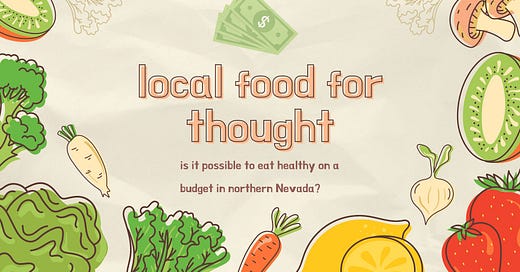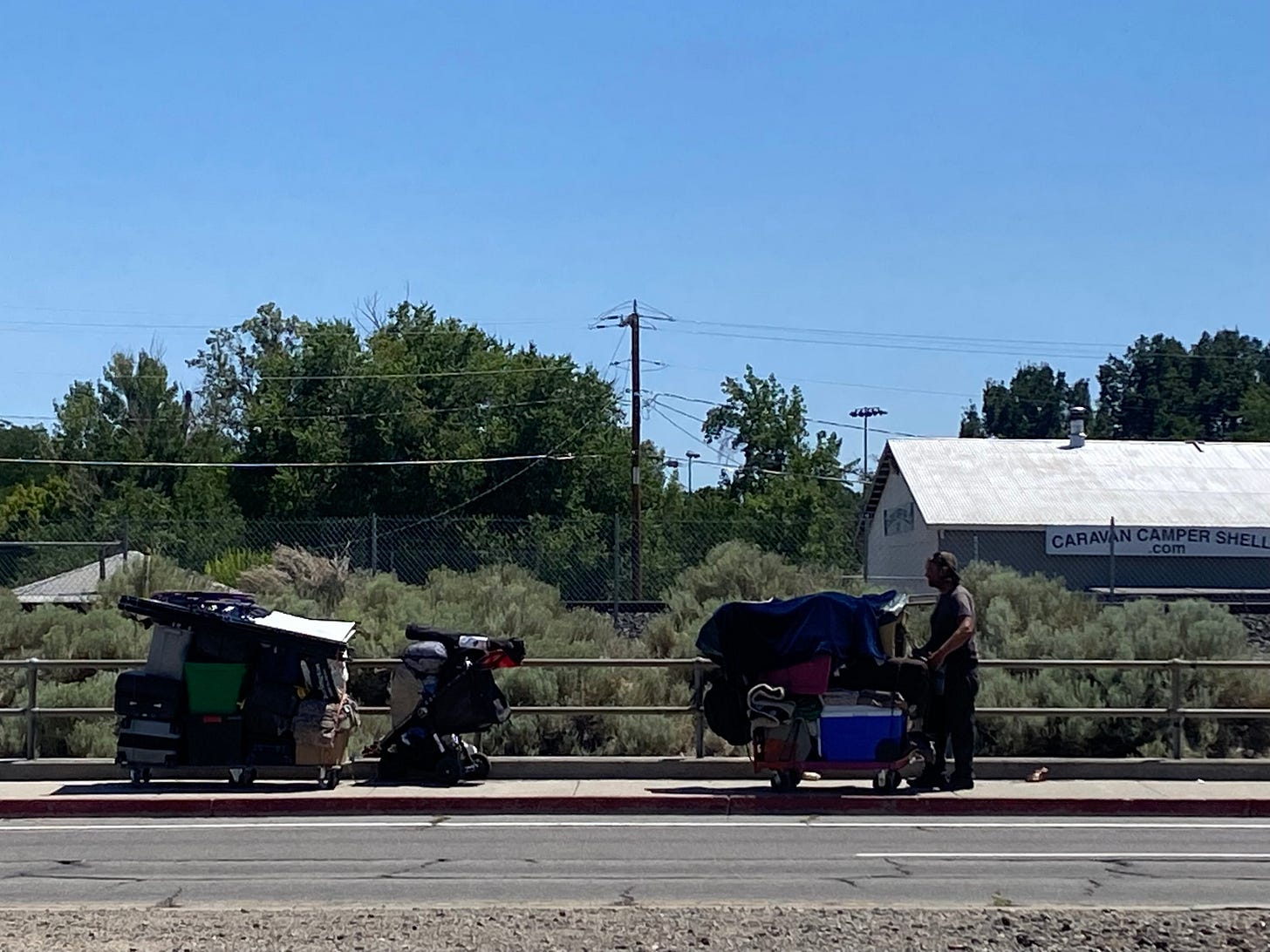A conversation on one of our recent social media posts about difficulties in paying grocery bills while trying to eat healthy keeps going on Facebook, with valuable insights from throughout our community, from the nutrition inclined to big picture wisdom.
Links between poor eating habits and health challenges are evident, as is the heavy burden of any consequential medical costs. So with prices so high for eating healthy, how can we make it work?
One commenter said they ate just once a day to save, another said they did intermittent fasting to keep their grocery bill in check, one recommended dried beans, while several indicated they sadly paid more on food than on their rent.
An 85-year-old widow wrote they were still working to afford their food after their husband passed away.
“It's purely corporate greed,” Julia Hammett wrote. “Most people have a little room where they could grow some tomatoes or fresh herbs. But they can't be bothered. But it is the number one way to save on your food bill.”
On that note, Wendy Baroli, a sustainable farmer for a small group of families wrote, “if you keep building houses on land that grows food, if you keep pushing farmland too far from where people actually live, if you forget one of the highest jobs that end in accidental death or suicide is farming and ranching- if you keep allowing corporations to consolidate land farming operations one day your food will cost you far more than you can afford - and when your malls and warehouses and parking lots and suburban sprawl values land for people over growing food- we will be beholden to the corporations for whatever they want to charge.”
“The biggest driver has been increased energy prices that affect all three stages of the supply chain and petrochemicals used for fertilizer,” Joel Camp responded.
Others veered into direct political discussions, blaming their non preferred side, while also bringing up tariffs, tax cuts and post Covid inflation.
Getting back to local specifics, many pointed to Winco as having some of the best deals, especially for pantry items, while one said Big Lots with locations on South McCarran and Lemmon Drive had some great value as well. Others said they bought general staples at Walmart or Grocery Outlet, bulk at Costco, and looked for savings elsewhere, grabbing various favorites at good prices from different placing, such as La Chiquita Mexican Market on Neil Road for meat, while generally avoiding Raleys and Safeway for most items if cost conscious.
Ellen Hardener said they went to “Trader Joe’s for cheese, lemon curd, cheap cut flowers in the winter for mental health.”
Getting into even more particulars, Hoss Julia commented on local difficulties in finding quality lettuce. “The one and only time I tried Sprouts, none of their greens were fresh, they were all wilted… Head lettuce doesn't just refer to iceberg. The Whole Foods in south Reno over waters their produce and the greens always look terrible,” they wrote.
Others had more overarching individual nutritional advice such as Ellen Herener who wrote: “Meal planning, shop less, waste less. Grain-based products like cereals, breads, chips are very expensive. Just stop believing that starting your day with sugar/carbs is nutritionally correct. That’s corporate marketing. Instead, put some eggs into the air fryer to “hard boil” 12 minutes while I get ready for work. Scramble them in a bowl and microwave. Eat leftovers from dinner last night. Skip the cereals that leave you hungry again in an hour. I take a salad with a small piece of lean protein and some marinated beans for lunch. Dinner is often a bowl of soup, or a piece of fish with some veg. You really don’t need to buy the pricey chips and soda, even diet. Really. Drink water straight from the tap. Reno has some of the best water of anywhere I’ve lived. Americans eat far too much carbs, and very deficient in protein.”









